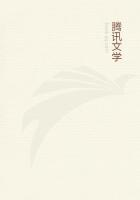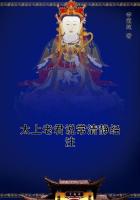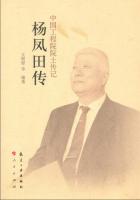This was Seriously observed in the yeere 1576 by divers most honourable and Grave Counsellours of State, Namely, Sir Nickolas Bacon, Lord Keeper of the great Seale; Sir William Burghley Lord Treasurour of England, Thomas Earle of Sussex, Francis Earle of Bedford, Sir Francis Knowles, Sir James Croft, and Master Secretarie Walshingham, with the assistance of other worthy persons of experience, namely Sir Thomas Chamberlain, Sir Thomas Gresham Knight, Master Peter Osborne, Master James Altham, Master Thomas Rivet, and Master Richard Martin, Master of the Mints: for they found that the following inconveniences were practised, by Bankers or exchangers for their Private gaine and benefite, for the advancing of some Common-weales, and the destruction of other Common-weales.
To lay their money with Gaine in any place of the world, where exchange lyeth.
To Gaine and waxe Rich, and never meddle with any Princes Commodity; or, To buy any Princes Commodity with the Subjects money, and not one pennie of their owne.
To understand whether money employed on exchange or Commodities is more profit.
To live and increase upon every Princes Subject, which take up moneys.
To winde out every Princes Treasure out of his Realme, whose Subjects bring in more Wares, then they carry out.
To make the Staple of money Runne, where the Rich Prince will have it.
To unfurnish the poore Prince of his provision of money in Warres.
To furnish their need of money, that tarry the selling of their Wares or Commodities.
To take up money to engrosse any Commodity, or to incorporate any Trade.
To hide their carrying away of any Princes money.
To fetch away any Princes fine money, with the baser money of other Princes.
To take up Princes base money, and turne it into fine, and pay the party with his owne.
To get all Merchants money into their hands and gaine thereby, and paying them, with their owne.
To make that Realme gaine of all other Realmes: whose Subjects live most, by their owne Commodities, and sell yeerely the over-plus into the world, and both occupie that increase yeerely, and also their old store of Treasure upon exchange.
To undoe Realmes and Princes, that looke not to their Common-wealth, when the Merchants wealth in such and the great houses of one Countrie, conspire together; so to rule th'xchange, that when they will be Deliverers, they will receive in an other place above the Standard of the Minte of the Princes money dilivered: and when they will be Takers; they will pay the same in an other place, under the Standard of the Princes money taken up.
To get ready money to buy any thing that is offered cheape, and to raise the price of Wares.
To get a part, and sometimes all his Gaines, that employeth money taken up by exchanges, in Wares, and so make others travell for their Gaine.
To keepe Princes from having any Customes, Subsidies, or Taxes upon their money, as they employ it not.
To value justly any Wares they carry into any country, by setting them at a value, as the money that bought them, was then at by exchange in the Countrie, whither they bee carried.
By the premisses we may see, of what importance the operation of exchange is, wherein the endeavours of Sir Thomas Gresham, thinking to rule th'exchange of England by plenty of money proveth fruitlesse, and might have beene done with more facilitie by direction, as shall be made manifest.
This was the cause that the French King Lewys the ninth, and Philip the faire, did Confiscate the Bankers Goods, and so did Philip de Valois, who indited them as Coozeners of the Common-wealth; for it was found, that in a short time (with 24, thousand pounds) they had gotten foure and twentie hundred thousand pounds. The kingdome of England would have beene more sensible of the like losse, if the hostile depredations heretofore made, had not supplied the same, nothwithstanding that the Coffers of Queene Elizabeth of blessed memory, were stored with seven hundred thousand pounds Starlin, before the Warres with the Earle of Tyrone in Ireland, wherein more than double that Summe hath beene spent, as I found by the accompts. For this disordred couse of exchange (as I have said) is like to the cruelty of the Planet Saturne, which maketh his Spheri call course in 30 yeers with great operation, and it is not many yeeres lesse, since I have observed this inconvenience for the good of the Realme, albeit Envy hath crossed the same, by ignorant men denying Principles, and by other meanes here not to be mentioned.
The second cause of the want of Moneys in England, is (saith the said Author) the Superfluity of Plate generally in privat mens hands. Here he hath omitted, to Note the great quantitie of Silver consumed in the ****** of Silver Thread, Spangles, Purles, Oaes, and the like, which upon late examination of the Right Honourable Henry Vizcount Mandeville Lord President, are found to amount 80 thousand pounds and upwards yeerely; whereas the Plate made in London, is only but 50 or 60 thousand pounds worth, which remaineth as a standing Treasure, when th'other is worne and consumed, leaving but some part to be molten againe: and if the Plate were converted into moneys, without all doubt, it would more easily be Transported, having his weight and fineness, and affording 12 in the 100. Gaine above the exchange in two moneths and lesse time.















